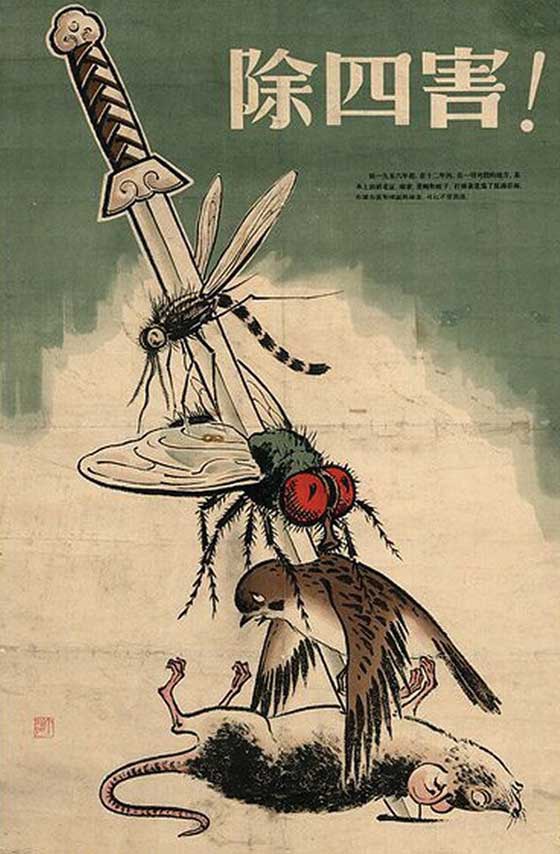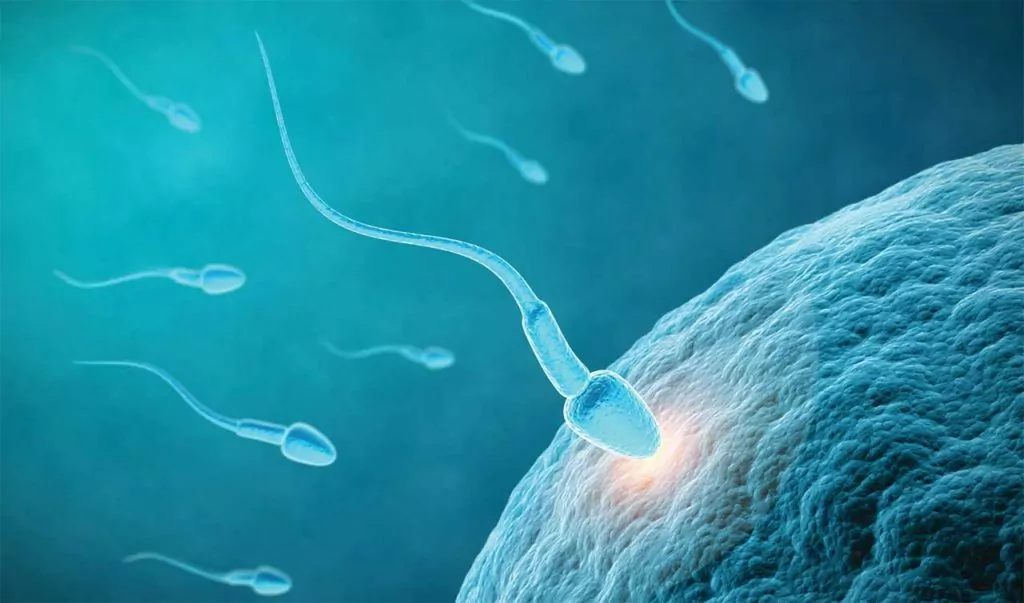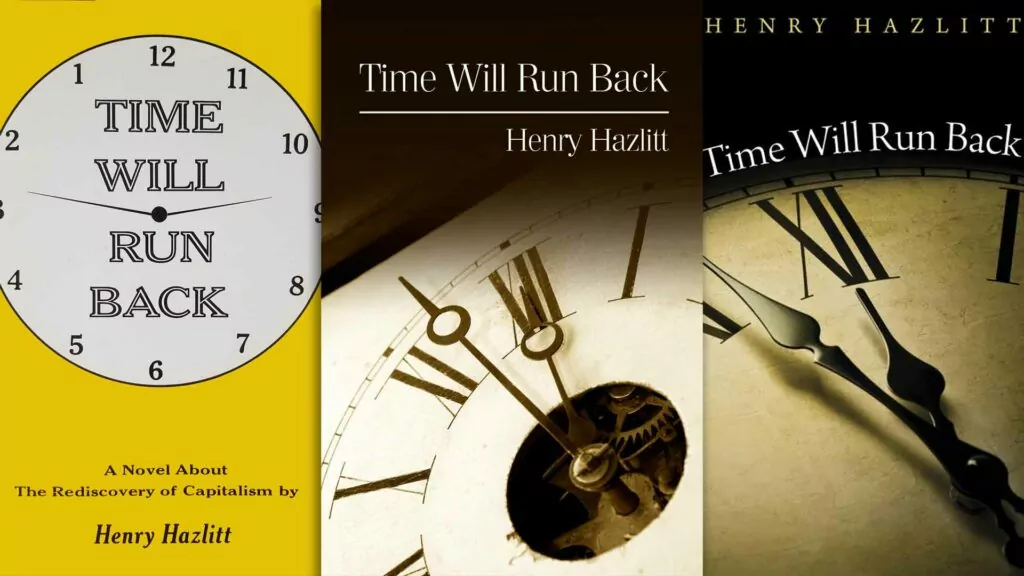Mao’s “Four Pest Campaign” shows why a nation’s leaders need to be humble about their expertise, and about what they attempt
*****
Most mornings I waken to the sound of sparrows chittering and chattering.
Approximately twenty to thirty little house sparrows have a sun-up inclination to alight on one of the cedar bushes right next to my window. These sparrows used to reside in my laundry poles – winter and summer. They had their babies there and they slept there. They also poked out their gray, brown heads and white cheeks to assess me as I walked by on my way to the chicken coop every morning.
Perhaps they now resent me as I cut down one of the laundry poles last summer. Feeling guilty about cutting down the laundry pole home, I fill the bird feeder with lots of seed. I have named eight of the songsters – Sam, Pete, Al, Rudy, Rembrandt, Ollie, William and Simon – and their daily, simple notes of joy give me pleasure and comfort.
A father who loved sparrows
My Dad told me that when he was a little boy, he learned to sing Psalm 84, especially verse 3, with great enthusiasm. He sang the Psalm in Dutch and the translated version of verse 3 reads:
Even the sparrow finds a home,
and the swallow a nest for herself,
where she may lay her young,
at your altars, O Lord of hosts,
my King and my God.
My Dad, who was a wonderful story teller, went on to relate that he thought the word altars, which in the Dutch language sounds a lot like lanterns, meant that sparrows would eventually make their homes in the lanterns lining his street. Consequently, dressed in short pants and a blue jacket, he would stand for long periods of time underneath the street lanterns. He would crane his neck and gaze up at these lamps, hoping to see sparrows lay their babies in the lights. It never happened, but he was convinced for a long time that it would happen.
The Chairman who hated them
In 1893, seventeen years before my Dad’s birth, Mao Zedong was born. Growing up to become the first chairman of the Communist Party of China (1935-1976), as well as being the founding father of the People’s Republic of China, Mao had absolutely no respect for, or understanding of, the Psalms. Neither did he love the sparrow, that fifth-day creature which God had set in the sky to be a blessing to mankind.
In 1958, the year my family immigrated from Holland to Canada, Mao Zedong, Marxist dictator of the world’s most populous country, decreed that all the sparrows of China were to be killed. Ostensibly to help China leap forward economically and socially, he began a “Four Pests Campaign” (1958-1962) to eradicate, among other animals, the Eurasian tree sparrow.
The Chinese Chairman, an unbelieving little man who did not comprehend that the sparse hairs of his head were numbered by God, did not know what he was doing. His proud slogan was: “Man must conquer Nature.” And, because of his campaign, the vast country and grand country of China, instead of leaping forward, began to leap backwards into famine and death.
Matthew 10:29-31 tells us:
“Are not two sparrows sold for a penny? And not one of them will fall to the ground apart from your Father. But even the hairs of your head are all numbered. Fear not, therefore; you are of more value than many sparrows.”
That is to say, God’s people are of more value than the sparrows; that is to say, God works all things out for His people’s good. He cares for them.
Besides the tiny, chestnut-crowned sparrow, three other animals were targeted in an overall elimination crusade. These three animals were the mosquito, the rat and the fly. Mao’s reasoning was: mosquitoes cause malaria; rats cause the plague; and flies are a general nuisance. Sparrows were included at the tail end of the elimination list because they ate both grain and fruit.

Chinese poster declaring war against the four pests: mosquitos, flies, rats, & sparrows
Government didn’t know best
Mao enacted a law in 1959 which made it mandatory for Chinese citizens to participate in the offensive against this common little bird, the sparrow. He had no idea that this little song-bird helped plants to grow. When the sparrow ate from plants, it passed on the seeds in its droppings. Mao didn’t have a clue that these small twitterers also served as food for other larger birds and mammals, nor that they helped provide necessary fertilizer with their excrement for the plants on which they fed. Neither did the Chairman know that sparrows ate harmful insects. With the enacting of Mao’s law to kill the diminutive sparrows with their kidney-shaped, black ear patches, the Chinese ecosystem and environment took a downward turn.
The Chinese people took to arms. They were forced to do so. All over the country people banged pots and pans together to prevent the little birds from settling into their nests. The little “pests” were about twelve centimeters in length and weighed less than an ounce. There were numerous posters declaring war on the birds. Young boys and men fired at the midget flyers with guns and slingshots. Yelling and screaming crowds beat trees with long, wooden poles. As soon as any little creature perched anywhere, worn out by the riots below them, they would be harassed to such a point that they would drop dead from exhaustion. Exhilarated by what they thought was a great leap forward and constantly praised by the authorities for their diligence, people collected dead birds and tied their petite brown bodies together, forming feathery ropes of destruction.
One small light in this fowl massacre was the Polish Embassy in Beijing. They refused to engage in the killing of the sparrows. A refuge for the remaining sparrows, the embassy was eventually surrounded by zealous Chinese citizens, who shouted and shrieked continuously. In the long run, the sparrows hiding in this small space also died. The Polish personnel cleared their area of dead sparrows with shovels.
Instead of sparrows, locusts
Psalm 102:7 reads: “I lie awake, I am like a lonely sparrow on the housetop.”
There were many lonely birds after Mao’s feather massacre. No census of them was taken prior to their demise. But it is estimated that there were perhaps some six hundred million of them. Hundreds of millions were eliminated through Mao’s campaign. The year after the murder of these birds began, insect infestation of field crops increased, the locust being the main predator. The locusts multiplied and ate everything in their path. Grain production collapsed and a famine began. All the places in which sparrows no longer chirped and chipped, had no cereal output.
The Great Famine which ensued is not allowed to be spoken of in China. Rather, this desolate time is referred to as the “Three Years of Natural Disaster” or the “Three Years of Difficulties.” Yang Jisheng, (1940- ), Chinese journalist and author, wrote a book entitled Tombstone: The Great Chinese Famine, 1958-1962. First published in Chinese in 2008 (and translated into English in 2008), it chronicles the Great Famine and the Great Leap Forward. Although he was, for a time, a loyal Communist, the Tiananmen Square massacre destroyed Jisheng’s faith in the Party.
Mao’s arrogance killed tens of millions
The horror stories chronicled by Jisheng are brutal and graphic. He records, among many, many incidents:
- a teenage orphan killing and eating her four-year-old brother
- the death of 44 of a village’s 45 inhabitants and the consequent insanity of the last remaining resident, a woman in her 60s
- the torture and beatings and live burials of people who declared realistic harvests, who refused to hand over what little food they had, and who stole scraps or simply angered officials
Jisheng wrote regarding his research:
“I didn’t think it would be so serious and so brutal and so bloody. I didn’t know that there were thousands of cases of cannibalism. I didn’t know about farmers who were beaten to death. People died in the family and they didn’t bury the person because they could still collect their food rations; they kept the bodies in bed and covered them up and the corpses were eaten by mice. People ate corpses and fought for the bodies. In Gansu they killed outsiders; people told me strangers passed through and they killed and ate them. And they ate their own children. Terrible! Too terrible!”
Devoting fifteen years to documenting this terrible famine, Jisheng catalogued a three-year catastrophe that is estimated to have taken 36 to 55 million lives across China.
At the end of his campaign against the four designated pests, Mao Zedong ordered the vendetta against sparrows ended, replacing it with an operation against bed bugs. Eventually, the People’s Republic of China had to import 250,000 sparrows from the then Soviet Union to stop the ecological disruption. After the sparrows had settled back into the country, the locust population was brought under control once more.
Over a period of three years, it is estimated that one billion sparrows, 1.5 billion rats, 100 million kilograms of flies and 11 million kilograms of mosquitos were annihilated throughout China. Ecological and economic disaster jeopardized the very fabric of the country. Even as Nebuchadnezzar before him, Mao was deluded into thinking that he owned nature. Mao (in)famously quipped: “Make the high mountain bow its head; make the river yield the way.” The truth is that Sinai and Jordan laughed at him and God held him in derision. Where is this mass murderer now?
Conclusion
In this day and age, when so much misery and terrible economic disaster looms and threatens to undo us, we do well to remember the sparrow blessing, the blessing which Jesus gives to all who acknowledge Him:
“But even the hairs of your head are all numbered. Fear not, therefore; you are of more value than many sparrows.So everyone who acknowledges Me before men, I also will acknowledge before My Father Who is in heaven, but whoever denies Me before men, I also will deny before My Father Who is in heaven.”
– Matthew 10:30-33












